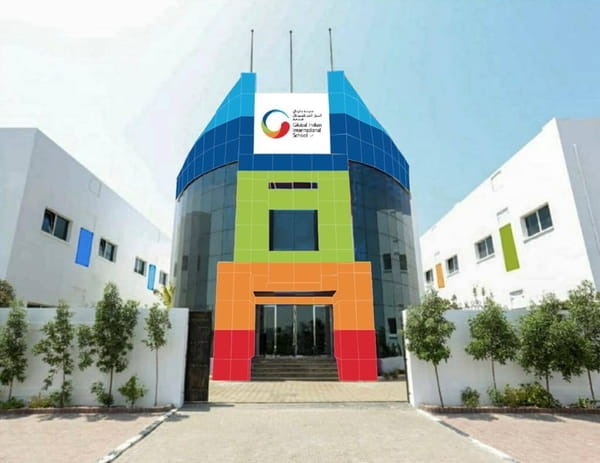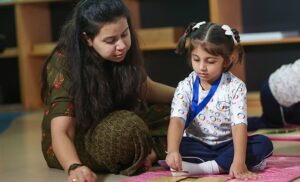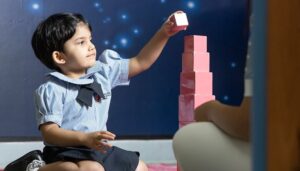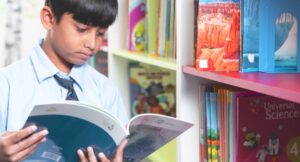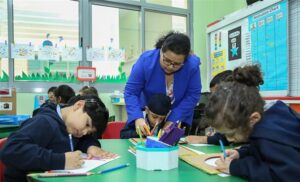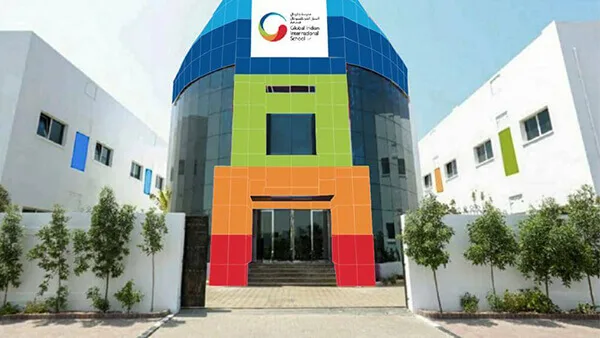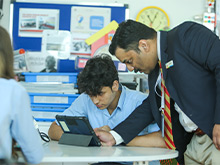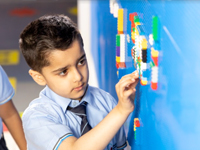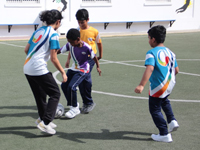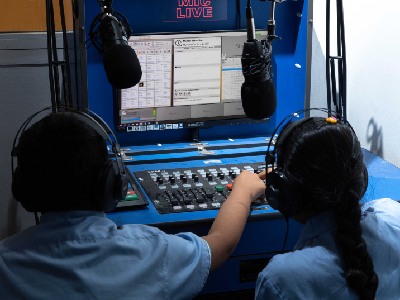“In the words of the child – I hear and I forget, I see and I remember, I do and I understand.”
— Dr. Maria Montessori
Importance of the Early Years
The first 3 years of children’s lives are crucial as their young brains develop at a fast pace. So providing them with Montessori education where they are nurtured is essential.
In the Montessori curriculum, they can participate in their own learning, and get the opportunity to explore rich environments using their 5 senses where they have self-directed learning and where they are given guidance by teachers.
The Montessori approach is a proven and well-established child-centered educational approach that helps children to develop to their full potential.
They pass through many developmental stages which are perfect to learn a specific skill.
These Sensitive Periods are Order, Spoken Language, Movement and Sensorial Activity.
Montessori Teachers identify those sensitive periods in children and provide them with related resources/materials for their overall development.
Montessori Online School helps children in developing a love of learning, and self-discipline, promotes independence and encourages children to help others and they develop many other skills over a period that lasts a lifetime.
A Brief History of Montessori
Graduated from the Faculty of Medicine of the University of Rome in 1896, Maria Montessori was the first woman to practice medicine in Italy.
She began to work with young children and discovered their capacity for learning and intrinsic needs.
She also found that the early years of life lays the foundation for children’s personality development.
In 1907, She opened “Casa Dei Bambini” (children’s house) in Rome where she put a range of different activities and specially-designed materials to understand children’s engagement.
She realized children learn by themselves by doing things on their own.
She then designed a series of materials, activities and teaching methods that led to the development of the popular Montessori Education.
Even after her death, the Montessori education motto remains the same “follow the child” and is still followed by schools all over the world.
The Montessori Method
How Children Learn?
At Montessori international school, teachers focus on 5 areas; Language, Cultural Studies, Practical Life, Sensorial, and Math.
Children have a natural tendency to absorb all the things from the environment like sponges, they learn language and culture with all five senses, explore the concept, develop their powers of imagination, and discover the world around them.
Montessori Method targets their unique sensitivities and capacities at each stage of development.
The child learns through all 5 senses such as listening, watching or tasting food, touching, smelling, etc.
The Montessori classroom is designed in such a way that children are given the opportunity to work on the materials of their choice and are given the freedom to work on them as much as they want.
This rich environment develops self-confidence, self-discipline and a joy of learning.
The mixed-age setting also encourages and improves their social and intellectual skills.
Principles of Montessori Online School
● To provide a rich, stimulating and nurturing learning environment.
● To support the children during their sensitive periods of development.
● To respect each child’s unique personality.
● To help children overcome difficulties.
● To help children become critical thinkers, problem solvers and lifelong learners.
● To nurture their natural desire to learn, discover and maximize their potential.
● To focus on overall development such as intellectual, physical, emotional and social development.
● To provide personalized learning based on each child’s unique stage of development, interests, and needs.
● To provide freedom to move, freedom to choose work material that interests them without interruptions.
Also Read: Ultimate Guide to Choosing the Best Montessori School in Dubai
How to Create a Montessori International School Education Environment at Home?
Most of the Montessori concepts can be successfully incorporated at home. So here are a few ways that can help to create a Montessori environment at home.
1. Organize Your Environment
Design the room or space so that everything is kept in order and make it more accessible for your child. Design child-size furniture, tables, chairs, desks etc.
Place everything at their eye level or on low shelves where your child can easily access them.
You can even change children’s toys and books every week or rotate the items as per seasons or child’s current interests in order to keep their curiosity fresh and prevent boredom.
2. Emphasize Life Skills
Even young children are capable of doing age-appropriate household chores, including some daily life activities or assigning tasks to them.
It will help them to be independent and learn life skills that can help in all walks of life.
3. Teach Concentration
In order to improve their concentration, observe what’s their interest and store all the materials of their interest and let them explore them more thoroughly.
4. Focus on Inner Motivation, Not Rewards
In Montessori, children are motivated and are praised for their efforts but that too in moderation.
The main goal is to teach children to learn and enjoy the happiness that comes from inside when they achieve something new or complete a task on their own and not to just learn for the sake of rewards.
5. Game and Toys
Make sure the items you are providing them are targeting their 5 senses.
Keep more hands-on experience with activities, games and toys that can develop their motor skills. Avoid hazards or sharp-edged items.
Pros of Montessori
● Children become self-motivated and independent learners.
● There is no standardized testing in Montessori classrooms as each child is evaluated on his or her unique potential.
● Children learn real-life skills.
● Montessori classrooms have kids of different ages which helps students to develop social, emotional, communication, and leadership skills by working together.
● This educational philosophy promotes independence by allowing kids to select activities on children’s learning through a hands-on approach.
● Children develop critical and creative thinking skills.
Cons of Montessori
● Some students may struggle learning math.
● Montessori is of 3 to 6 years so, by the time they have to move to elementary school years, they may find difficulty adjusting to other friends as they have spent most of the crucial years with the same friends in Montessori.
● Montessori does not have standard assessments and no grading system.
Conclusion
Montessori International School is student-led and enriched by knowledgeable and caring teachers who provide opportunities that promote independence, multi-sensory learning and passionate inquiry.
Providing the right environment in the early years of childhood helps students to be confident, self-directed learners, who are responsible and feel accountable for the things they do and develop into highlighted skilled individuals.
